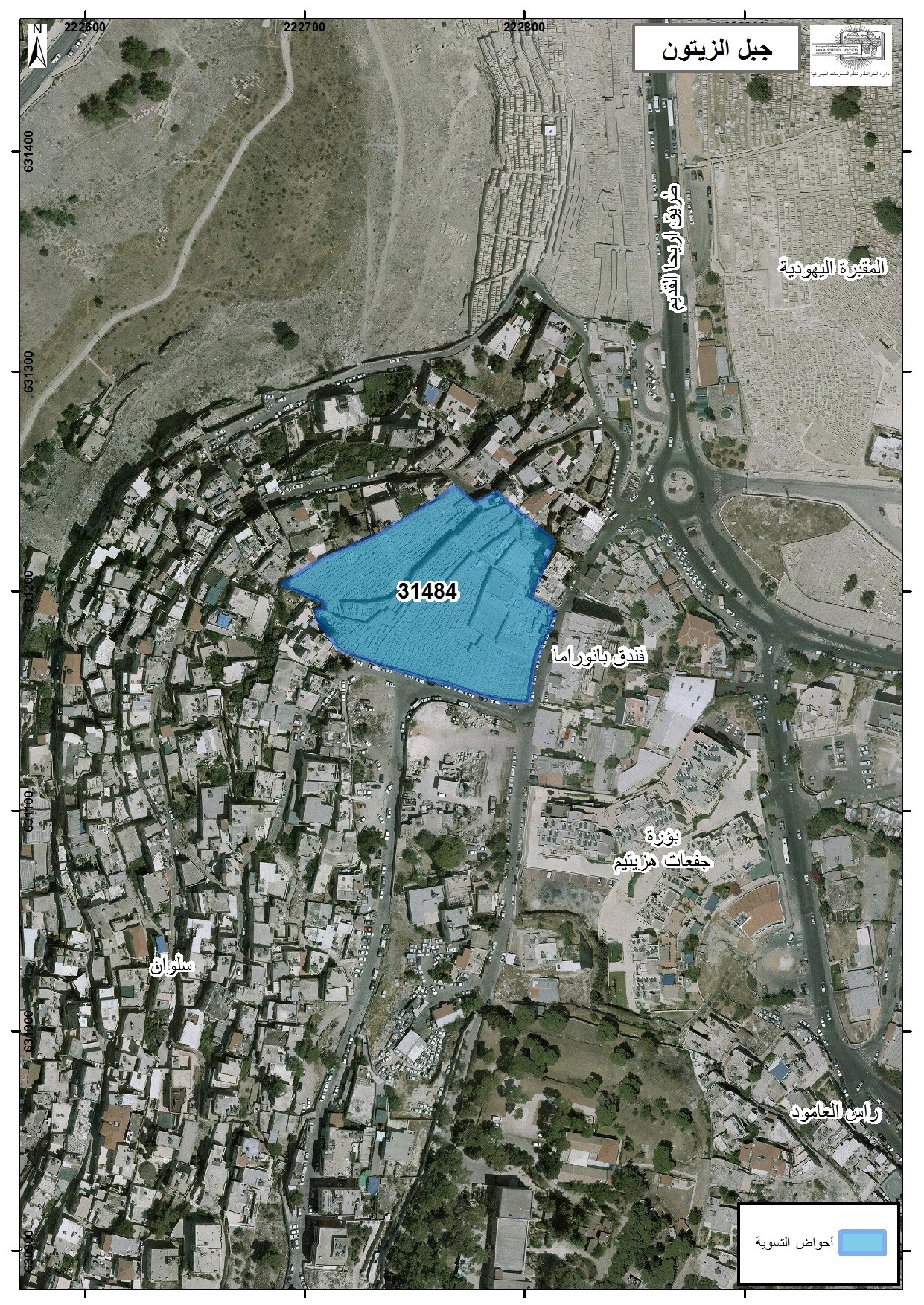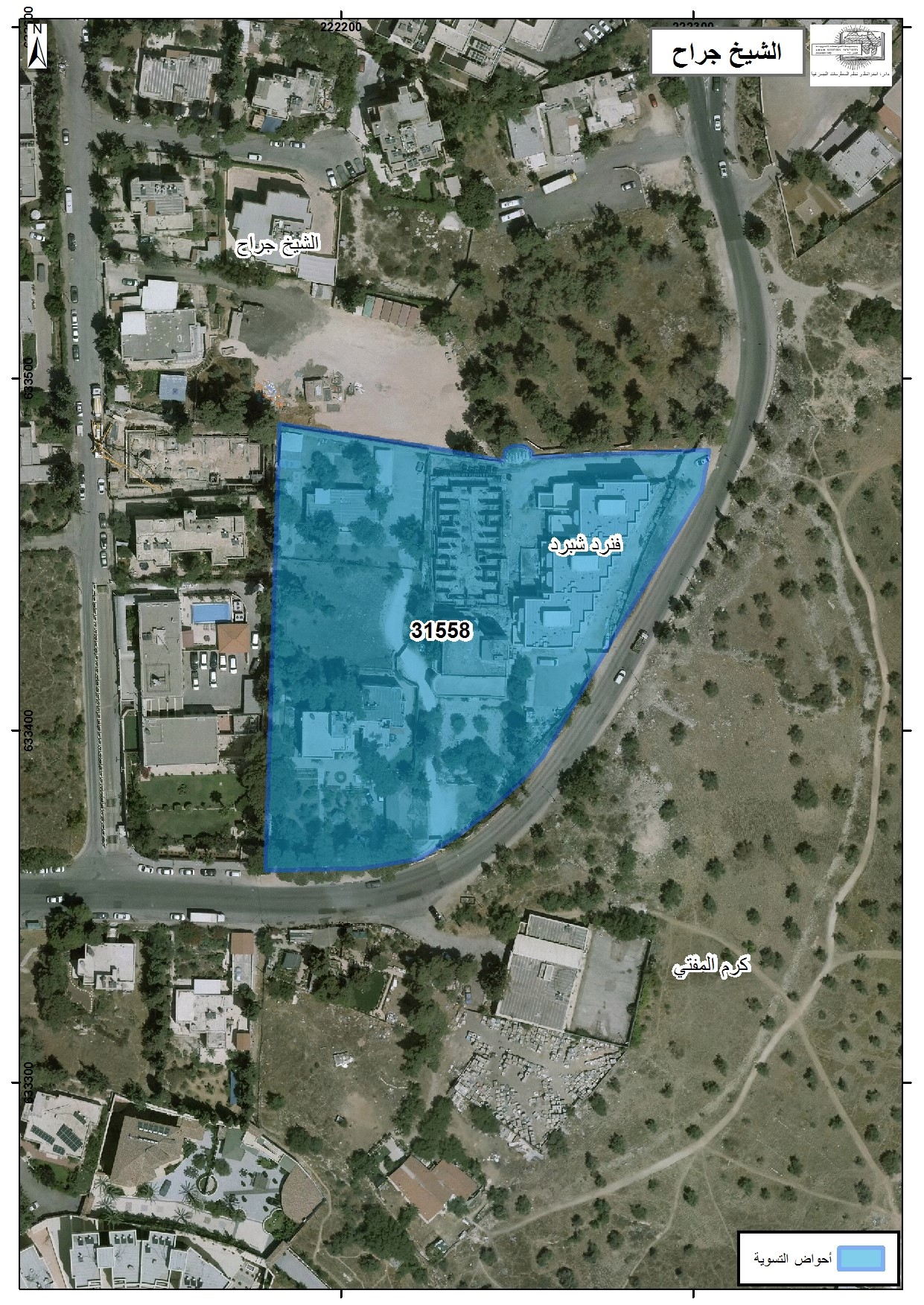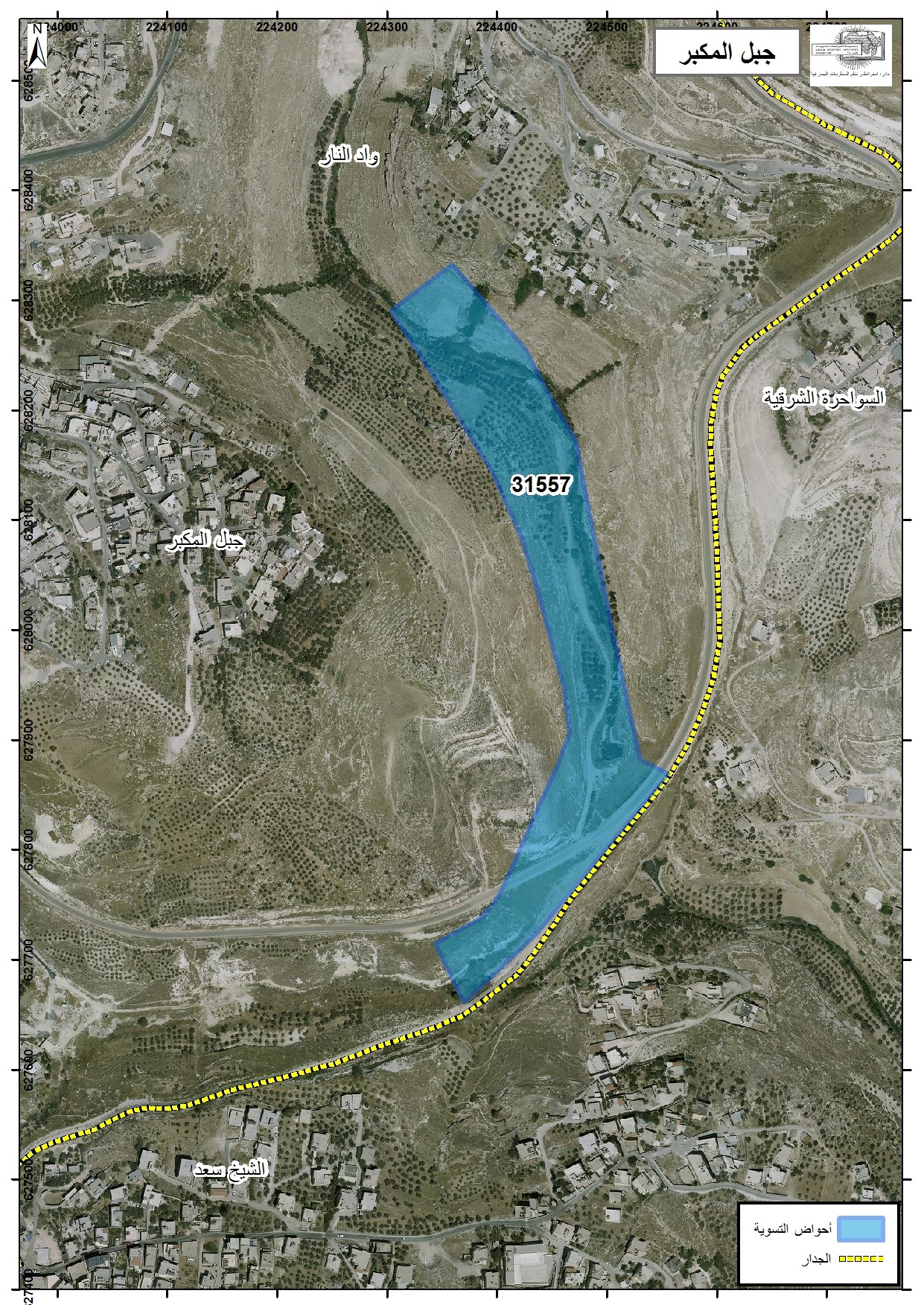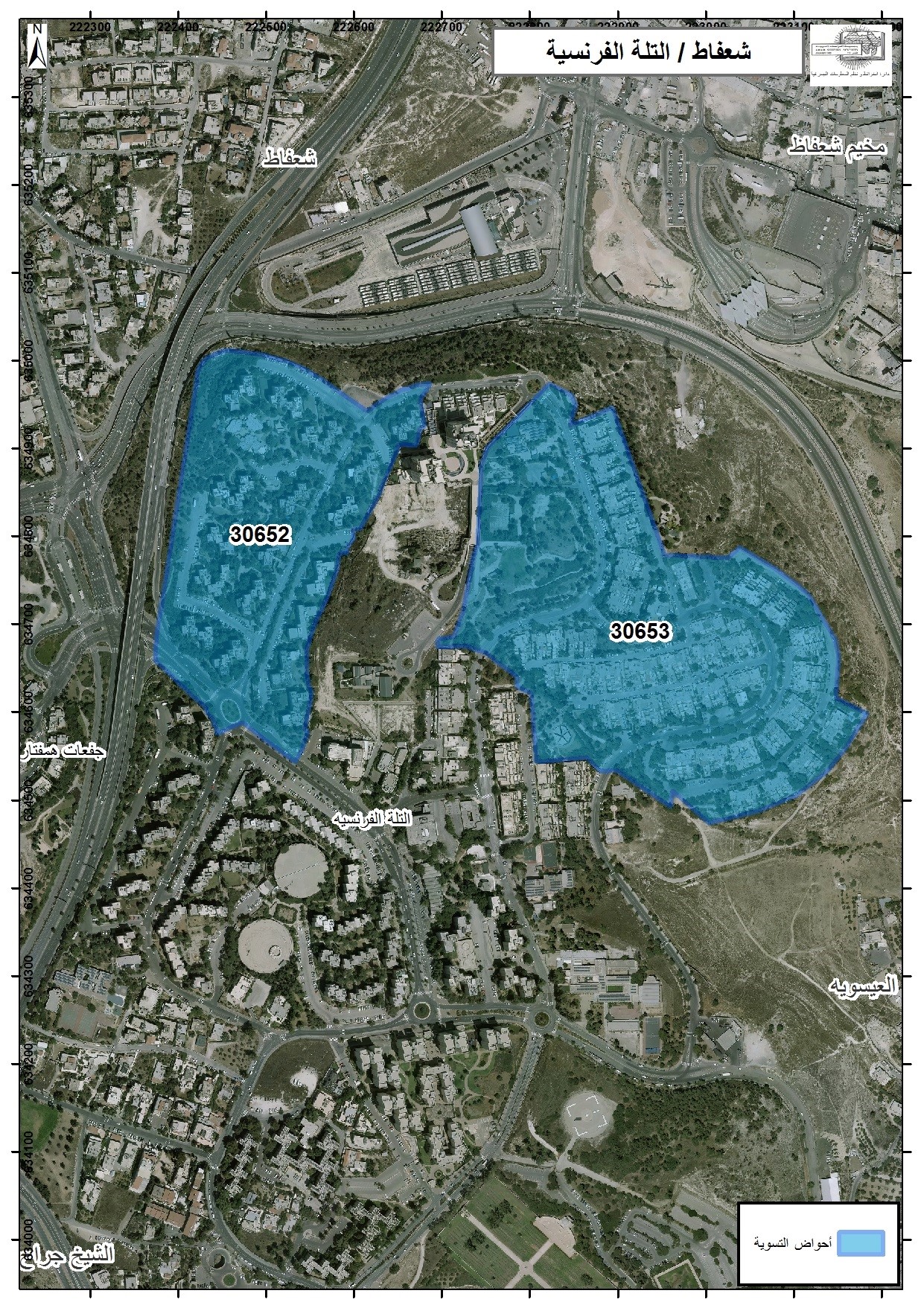|
Analysts and experts: The registration of Palestinian properties is aimed at transferring them to Israeli authorities
Political analysts and land experts are warning against the implementation of the land and property registration law being proposed by the so-called Israel National Fund “Keren Kayemet”, which includes the registration of thousands of dunams of Palestinian land and properties in Jerusalem in its name. They say this is just one more tool in Israel’s hands to steal Palestinian land after its Judaization of the names of streets and attempts to ‘Israelize’ Jerusalemites. Loopholes and gaps Political analyst and journalist, Rasem Obeidat, says the neighborhoods and areas selected for the implementation of this land law is no coincidence. The Israeli government and the Jewish National Fund believe there are loopholes in these area that help Israeli parties to take control over the largest possible areas of land by implementing the absentee property law. These are areas where there are nearby settlements or the land was never settled by Jordanian authorities when they administered the West Bank, including Jerusalem. Obeidat says there are approximately 530 files in the West Bank and 2,050 in Jerusalem, including 2,000 plots of land with a combined area of 2,500 dunams that are currently under inspection. He adds, “The plan to register properties and land in Jerusalem is a project of Judaization par excellence, aimed at reinforcing control and imposing Israeli sovereignty over the city under the guise of a ‘unified Jerusalem’. This includes increasing settlements and land takeover and the expulsion and displacement of the city’s original inhabitants. There is also the absentee property law being applied, whereby the state takes over land from Jerusalemites living abroad or even in the West Bank and legitimizes forged land and property deeds, allowing them to be legally sold.” He maintains this new plan means Jerusalemites will be forced into paying huge sums of money in order to register their lands, not to mention the possible problems that could arise due to family disputes over ownership if no papers or deeds can be produced. Registration plans Land and settlements expert Khalil Tufakji says that after 1967, Israel halted all land registration and since then, several measures have been taken vis-à-vis these plots, including their confiscation or sale. He maintains that by registering these properties, Israel is looking to “hit two birds with one stone” by transferring what Israeli authorities claim is Jewish-owned property from the names of individuals to Keren Kayemet, which prohibits sales to Arabs. At the same time, it wants to register many of these plots as ‘absentee properties’, therefore putting them in the hands of the Israeli Custodian of Absentee Properties. The third point in this plan is to register part of these properties as municipality-owned property, after they were confiscated and schools built on them. In addition to this, there are confiscations that took place between 1967 and 1995 for the ‘public good”. In short, Tufakji says, Israel wants to transfer personal Palestinian properties to the Israel Land Authority or as state-owned properties. In addition, there are the properties that fall within the land registration process, which are areas owned by Jordan, on part of which settlements will be built, in addition to Lutheran Church properties that were confiscated. Tufakji points to another issue pertaining to the registration process, which is that huge areas of land inherited by Muslims and Christians were reduced to small plots or absentee properties. This means the Custodian of Absentee Properties intervened regarding these plots of land, not allowing any investments, sale or purchase of them except with its permission. Hence, this registration process is part of the Judaization process of the city, he stresses, along with attempts to Judaize its citizens and street names. Purchase processes Regarding the circumstances surrounding the purchase of land in Palestine prior to 1948, Tufakji explains: “This land originally belonged to Palestinian Jews in this area and which were managed between 1948 and 1967 by the Jordanian Custodian of Enemy Properties”, a commission headed by a Jordanian official whose job was to maintain properties owned by Jews before 1948, such as these plots of land in Shufat and Beit Hanina, they also include land located in the western areas of Sheikh Jarrah, known as “Kabaniyat Um Haron”, homes of Jerusalemite families threatened with forced expulsion in the eastern part of the neighborhood and plots of land that were purchased after 1967, which were not registered in the land registry at the time. In addition to these, there are properties confiscated for public interest and which have not yet been utilized but which Israel now wants to transfer to state-owned properties. According to Israeli estimates, there are approximately 2,500 dunams of land that include land in the towns of Kufr Aqab and Rafat on which residential buildings are built. Other areas, such as the Shepherd’s Hotel in Sheikh Jarrah, which belongs to the Husseini family, were turned into absentee properties under the Custodian of Absentee Properties while others were put under the Israel Development Authority or turned into state-owned property. Property of heirs abroad Tufakji points to a major problem regarding ownership, which is that much of this property is owned by heirs who live abroad. According to the registration process, these heirs must produce proof of ownership for the land but whether they do this or not, the land is still considered absentee property since they reside abroad. That is, the land is considered to have no known owners and is therefore registered as being part of the state. He adds, “There is yet another problem; we expect in the future there will be Israeli projects that we many not know about now but which will show up later. This is why they want to speed up the registration process so these projects can be put in motion.” Abandoned Palestinian properties Regarding the fate of abandoned Palestinian properties and the possibility of demanding their reclamation, Tufakji contends: “If they were left to the Israelis, there is not much that can be done because it becomes a political issue. There are properties that were confiscated for public interest according to a 1943 law, all of which means this has become a political more than a legal issue. That is, the law serves Israelis whether this law is Jordanian, British or Ottoman. According to Ottoman law, for example, abandoned land goes back to the existing state or successor,” Tufakji says.




http://www.miftah.org |